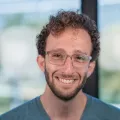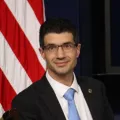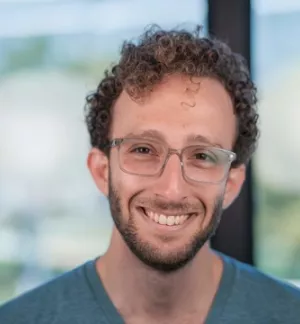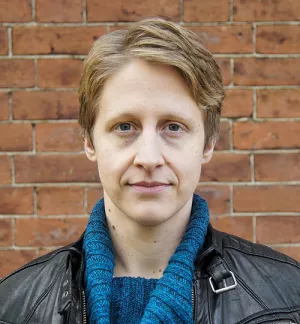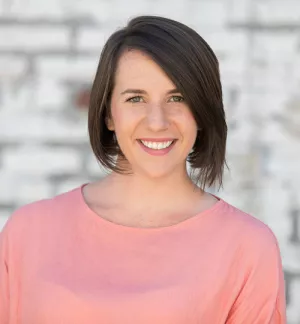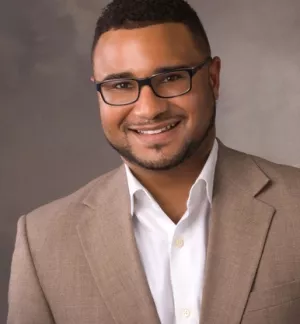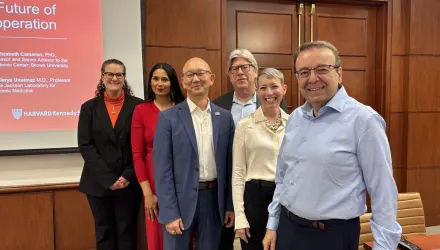Current Episode
6. The Future of Public Health Data
In this episode of Fellow Fellow, Mark talks to Flavia Chen, a public health researcher, on the current state and future paths of public health data. The conversation weaves through topics surrounding public health data and, as Flavia puts it, “what health related information is collected, who collects it, on whom, how it's used, how it's shared, how it's stored - and then at a more ethical level, how individual and collective rights, like privacy, are balanced with broader public interests.”
Guest
Flavia Chen is a public health researcher and fellow fellow of mine at the TAPP Project. Prior to the fellowship, she was the Deputy Program Manager for the Program in Prenatal and Pediatric Genome Sequencing at University of California San Francisco. Her research interests focus on the ethical and policy implications of translational genomics, including issues of data governance, as well as on social and policy influences on health outcomes. Flavia’s work has been published in The Hastings Center Report, Genetics in Medicine, and Pediatrics among others. She earned her MPH from the University of Washington. You can follow Flavia’s work on her LinkedIn profile.
Related Readings
Krieger, Nancy. Epidemiology and the People's Health : Theory and Context. New York: Oxford University Press, 2011.
Benjamin, Ruha. Race after Technology : Abolitionist Tools for the New Jim Code. Cambridge, UK ; Medford, MA: Polity, 2019.
Mangravite, Lara M., Avery Sen, John T. Wilbanks, and Sage Bionetworks Team. “Mechanisms to Govern Responsible Sharing of Open Data: A Progress Report.” Mechanisms to Govern Responsible Sharing of Open Data: A Progress Report, October 6, 2020.
Credits
Produced by Mark Lerner
Music by Zach Pfeifer
Artwork by Zihao Wang
Past Episodes
5. What America Thinks about Automated and Electric Vehicles
It’s no secret that we will all have to change how we move and drive in order to slow the pace of climate change. However, as companies race to build technology and raise investments on both electric and self-driving cars, one factor still stands in the way of significant progress: public perception of these technologies. Listen in as Mark interviews Devin Gladden on his research on how we as a country feel about automated and electric vehicles, and what you personally can do to move these markets forward.
Guest Speaker
Devin C. Gladden is an energy, technology, and transportation policy professional who has worked on a variety of climate change and international issues. Currently in his role at AAA National as a manager for federal energy and technology policy, he covers a range of vehicle related issues — including gas prices, deployment of electric vehicles, and safety policy for self-driving cars. Prior to his current role, Devin served as a special advisor for the Office of Electricity and Energy Reliability at the U.S. Department of Energy during the Obama Administration. He has also worked at NASA, the World Bank, and the State of Delaware. He holds a Masters in Environmental Policy and Regulation from the London School of Economics and Political Science.
Related Readings
Stephens, T. S., J. Gonder, Y. Chen, Z. Lin, C. Liu, and D. Gohlke. Estimated Bounds and Important Factors for Fuel Use and Consumer Costs of Connected and Automated Vehicles. National Renewable Energy Laboratory, November 2016.
Fleming, Kelly, and Mark Singer. “Energy Implications of Current Travel and the Adoption of Automated Vehicles.” Energy Implications of Current Travel and the Adoption of Automated Vehicles. National Renewable Energy Laboratory, April 2019.
Moniot, M., Ge, Y., Reinicke, N., and Schroeder, A., "Understanding the Charging Flexibility of Shared Automated Electric Vehicle Fleets," SAE Technical Paper 2020-01-0941, 2020.
Credits
Produced by Mark Lerner
Music by Zach Pfeifer
Artwork by Zihao Wang
4. “Whose Streets? Our Streets!” - Tech Edition
Rebecca Williams takes us into a deep conversation on her research on the future of technology in cities. Weaving together her background working in data analysis, policy analysis, city planning, law, and civic technology, Rebecca’s work highlights five key harms that unchecked and unregulated technology in cities can bring to our society.
Guest Speaker
Rebecca Williams is a Fellow with Belfer Center's Technology and Public Purpose Project where she is researching threats to civil liberties posed by "smart city" technologies. Rebecca has previously worked on data policy and management at the local, federal, and international level for the White House Office of Management and Budget’s Office of the Federal Chief Information Officer, Johns Hopkins University’s Center for Government Excellence, General Services Administration’s Data.gov, and the Sunlight Foundation. You can follow her work on her personal website, on her Substack, or her Twitter account.
Related Readings
Kalia, Shahid Buttar and Amul. “LinkNYC Improves Privacy Policy, Yet Problems Remain.” Electronic Frontier Foundation, October 5, 2017.
Descant, Skip. “Lawsuit Challenging L.A.'s Collection of Scooter Data Dismissed.” Government Technology State & Local Articles - e.Republic, March 1, 2021.
Musulin, Kristin. “Cisco Explains Its Smart City Software Exit.” Smart Cities Dive, January 15, 2021.
Sheard, Adam Schwartz and Nathan. “Why EFF Doesn't Support Bans On Private Use of Face Recognition.” Electronic Frontier Foundation, January 20, 2021.
Credits
Produced by Mark Lerner
Music by Zach Pfeifer
Artwork by Zihao Wang
Click here to access a transcript (PDF) of Episode 4
3. Venture Capitalists and Public Purpose
Mark talks with Liz Sisson, Chief Operating Officer at venture group Urban Us and a fellow Fellow researching the intersection of venture capital and public purpose. The two of them talk about the existing frameworks in the venture capital space for thinking about public purpose, where they are lacking, and how Liz is building a new model for thinking about incentive and structures in the venture world.
Guest
Liz Sisson is the Chief Operating Officer of Urban Us, a venture group investing in startups that are improving life in cities and combating climate change. She was also at the Roosevelt Institute, where she managed programs that researched and implemented public policy initiatives in local communities across the country. She’s worked on a wide variety of subjects, including economic development, transportation, climate change, and housing. You can follow Liz’s work on her LinkedIn profile.
Credits
Produced by Mark Lerner
Music by Zach Pfeifer
Artwork by Zihao Wang
2. The Public-Purpose Consortium
Mark talks to Jake Taylor, a researcher on quantum information science with experience in a wide array of institutions, including the White House’s Office of Science and Technology Policy. Here, Jake talks about how he’s taking the lessons learned in the quantum space about how to create effective public-private partnerships via the Consortium model, and how we can scale this to other public-purpose topics.
Guest Speaker
Jake Taylor has been doing research in quantum information science and quantum computing for the past two decades, most recently at the National Institute of Standards and Technology. He also spent the last three years as the first Assistant Director for Quantum Information Science at the White House’s Office of Science and Technology Policy. In his research as a TAPP Fellow, Jake is looking at how lessons learned in implementing science and tech policy for his home emerging field (quantum) can enable public purpose in other areas. You can follow Jake’s work on his personal website, quantumjake.org.
Credits
Produced by Mark Lerner (Follow Mark on Twitter @_mjlerner)
Music by Zach Pfeifer
Artwork by Zihao Wang
1. Sexual Censorship on Social Media
In this inaugural episode of Fellow Fellow, Mark interviews Clare Bayley, a fellow Fellow at TAPP, former Director of Product for the U.S. Digital Service, and sex-positive researcher. Together, they discuss her research on the sex positivity, or lack thereof, of social media platforms. Sexual censorship, discrepancies between policies and implementation, and a reckoning on how society views sexuality, all make an appearance in this conversation.
Guest Speaker
Clare Bayley is currently a Fellow at the Technology and Public Purpose Project. Most recently, Clare served as the Director of Product for the United States Digital Service, working under the White House to improve how the government makes and uses technology. You can follow Clare’s work on her Instagram profile.
Related Readings
- Cecilia Kang, Mike Isaac, "Defiant Zuckerberg Says Facebook Won’t Police Political Speech", New York Times, Oct. 17, 2019.
- Gustavo Turner, "Facebook, Instagram Target Sex Workers With Updated 'Community Standards'", XBIZ, October 23, 2019.
Credits
Produced by Mark Lerner (Follow Mark on Twitter @_mjlerner)
Music by Zach Pfeifer
Artwork by Zihao Wang
Lerner, Mark. “Fellow Fellow.” March 10, 2021

